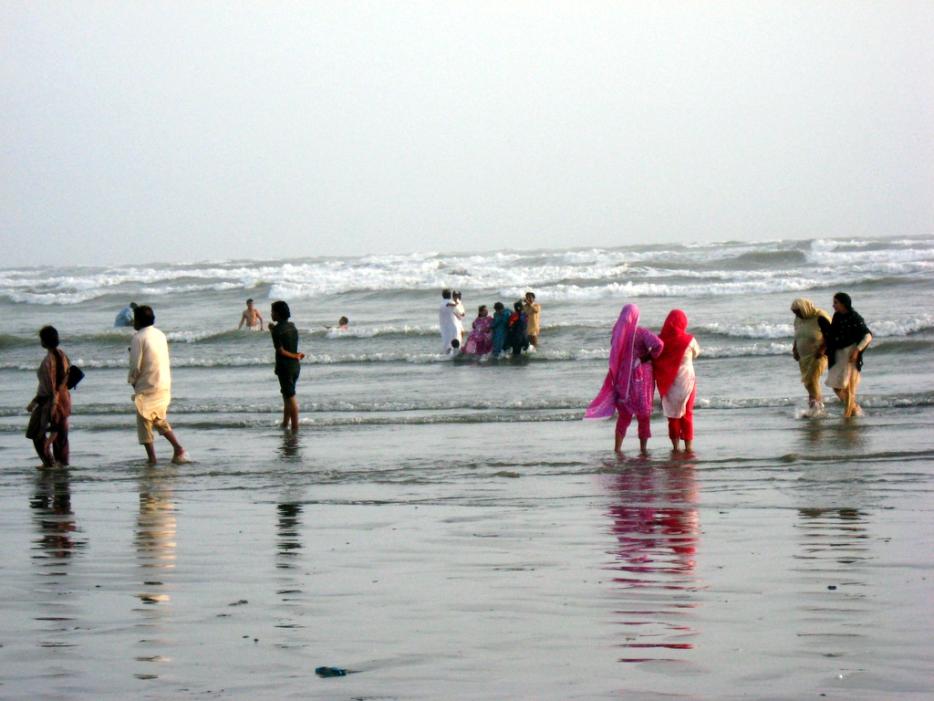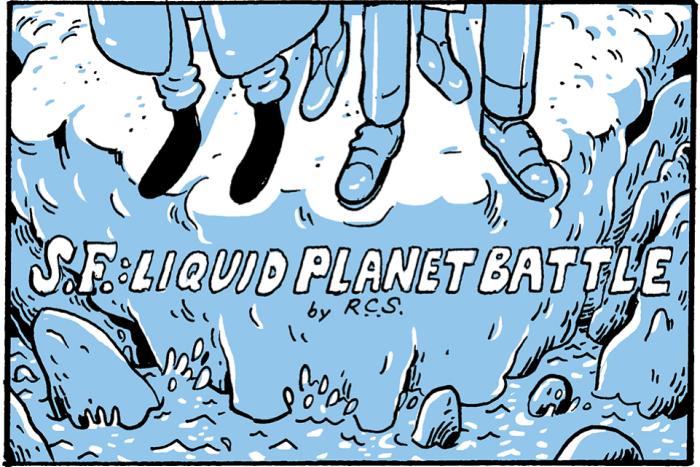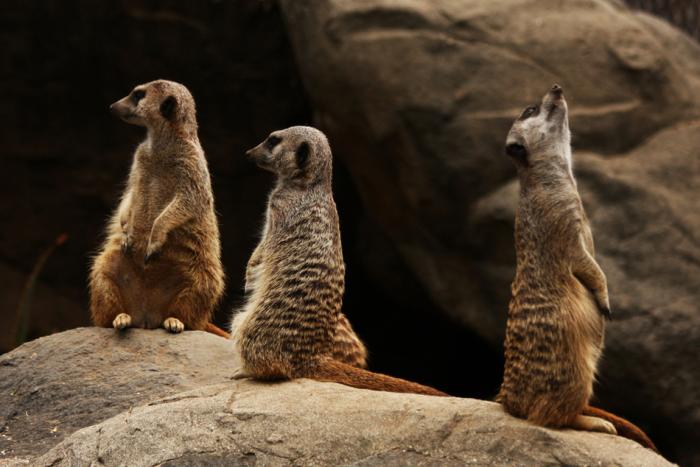Early July was always the same in Karachi―extreme heat came first and then, finally, the rain. We ate mangoes for breakfast, after lunch, as a mid-afternoon snack—the sweet smell hung in the air all day long. I would wake up every morning to the sound of the young maid sweeping under my bed with the broom made of palm fronds. Shabana, one of the many household helpers, was the oldest sister of six and had to start working at an early age. To me, she was Shab, the person who did my laundry in the summers when I visited Pakistan, the person I wrote my very first stories with. We became friends after I saw her doing laundry on the roof. She would sing old Hindi songs while wringing out clothes and organizing them by colour. After that day I began to help her, sometimes folding while she ironed, other times thinking of a new song we could sing together. Neither of us cared about the social divide between us. We shared a particular interest in documenting the experiences of others. I followed her around in the afternoons with loose sheets of paper or old envelopes that we filled with words, made into paper birds and threw off the balcony to see if they would fly. They landed in puddles outside the neighbouring mosque, the ink smudged and then dissolved into the blue of the water. We were eight when we started this tradition: the characters were inspired by something she saw or gossip she’d heard, and the words on paper were mine.
Flights from Karachi back to Toronto were always early in the morning, ready to take off just as the sun was rising. Before leaving my grandmother’s house I would get off the phone with my dad, who was excited and relieved that we were returning, eat one of the chocolate biscuits that my uncle bought just for me and hide a bagful inside my suitcase. Shabana and I became so used to saying goodbye that after the first few times we didn’t even say the words—we had an unspoken agreement that we would meet again. All of my relatives would squeeze into three cars to drop us off and I would press my forehead against the window with tears streaming down my cheeks. This was most of my family and I would not be seeing them for a year, sometimes longer.
We’d enter the foreign passport line and move through to the security-check, where a perplexed woman would go through my Winnie the Pooh bag and ask my mother why she was taking me back if I was so sad to leave. My mom would ignore the question. My parents moved so that my siblings and I would have access to a higher quality of education and a wider range of job opportunities. She didn’t want to explain the social and economic benefits of living in Canada to a stranger. After landing at Pearson International Airport, the process was similar, but rather than inquiries about why we were leaving, we were greeted instead by the usual questions about why we’d gone, after which we were faced with the same two words, which the stern looking immigration officer would say with such force that I’d imagine them following me around in a text bubble for days afterward: “Welcome home.”
Since immigrating to Canada 19 years ago, I have moved back and forth between Pakistan and my new home, between my identity as a South Asian and a Westerner, between the cultural practices there and here. In elementary school, when teachers would read my name on the first day of classes and ask me where I was from, I never had an answer. Which country did I belong to: the one in which I was born or the one in which I lived? And what did it mean to declare my allegiance to a country? When I grew tired of the awkward pause that came after this query, I asked my dad. “That’s simple,” he said. “You are a Pakistani-Canadian.” His response was less than satisfactory. These two words united were an oxymoron. They brought together biryani and bologna sandwiches. Living in a joint-family system and moving out of your parents’ house at 18. Valuing curves and the size-zero phenomenon.
To people in Pakistan, I’m an “overseas Pakistani,” someone who chose earning money over loyalty to my native country. To people in Canada, I will always be an immigrant, someone this multicultural place allowed in out of kindness and generosity. I realize now that home, of all the places in the world, needs to be defined and stable, that I need to pick one, which is why I have decided, after receiving the university degree that was one of the reasons my parents brought me here, to move back to Pakistan.
*
Most of the families that migrated from Pakistan to the West in the last half of the twentieth century were, like my parents, part of the middle class. Figures revealed by the government of Pakistan in 2013 reported that income inequality was starker in the 1990s than any other time period in the country’s history—a period during which the rich enjoyed a 20-percent income gain while the middle class eroded. My parents carried their culture along with them into their new life; their respect for Canada combined with a need to keep my siblings and me connected to our roots. We moved to predominantly South Asian neighbourhoods, spoke to each other in Urdu, and celebrated all of the cultural holidays. As a child I would ask my mother to unpack the salwars stored inside suitcases in the basement so that I could wear them to school, but she always refused. When I got an MP3 player, I secretly added Jagjit Singh and Abida Parveen songs along with Avril Lavigne. My parents thought we could continue living on a bridge where all our differences were somehow reconciled, but the reality is that no one can survive in this in-between space forever. Eventually we have to choose a side and walk towards it.
All of my relatives would squeeze into three cars to drop us off and I would press my forehead against the window with tears streaming down my cheeks. This was most of my family and I would not be seeing them for a year, sometimes longer.
My grandfather used to host classical Eastern music parties at our house. I would impatiently wait for these monthly soirees. I loved everything about them, from the music to the crowd, which consisted mainly of actors, poets and musicians who were deeply embedded in the art scene back in Pakistan. One evening when I was 20 years old, I told the room full of people that I was thinking about returning to Pakistan to make sense of my identity and cultivate my interests in Eastern music and literature. This admission made a guest drop my mom’s Churchill Blue Willow saucer on the tile floor. My dad quickly disposed of the remains of the family heirloom and someone told a bad joke to change the topic. Everyone pretended they hadn’t heard anything, but they all stored this memory, alongside other moments of insanity perpetrated by family members and friends. It became an anecdote for them to whisper to other parents as a warning against exposing their children to too much of their cultural heritage.
*
Pakistan is not foreign for me. I spent a large part of my childhood in that country. Unlike my parents, I have explored Karachi extensively, independently and with my cousins. When my mom lived in Pakistan she didn’t have the rights and freedoms that I have when I return and my dad left the country as soon as he was old enough to leave. My dad sees this decision to move as a betrayal to Canada and to him. With an American post-secondary education and a deep-rooted love for Liberal values, my dad couldn’t adjust back to life in Pakistan after being exposed to the fast-paced life in the West, where social services were easily accessible and the legal system was trustworthy for the most part. He applied for immigration soon after I was born, and never accompanied us on our summer trips back to the country. In becoming a Canadian citizen he had moved forward and he felt his old home was still stuck in the past. Unlike my dad, I think we left more than a country riddled with problems—we left behind parts of who we are, and have been living with a phantom limb-like syndrome that convinces us we haven’t.
While my parents actively escaped this region, I feel a responsibility to return to it. The idealist in me believes a new, determined generation guided by ideas of democracy and justice will combat the gender inequality and poverty. It urges me to fill the gap left behind by my parents’ generation with diverse narratives that break away from the mainstream one of Pakistan as an oppressive developing country. There is another side that I discovered while writing stories with Shabana, a side I know exists because I have seen it in my family; lawyers, architects, engineers and artists, all working to bring about change; read it in the Mohsin Hamid and Daniyal Mueenuddin novels that reveal the beauty that exists in this complicated country.
*
These days, when I return to Pakistan, I’m merely a tourist tasting delicacies and taking pictures. English slips into my once-pristine Urdu and my tolerance for spicy food has substantially diminished. Even my need to explore my identity often seems like a product of the education and lifestyle I have been exposed to in Canada, a country built on the idea of individualism. I recognize that even having this sort of choice about where I’d like to live betrays the particular position of privilege I enjoy. While in Karachi this past summer, Abdul Karim, a six-year-old bag-carrier at the outdoor Sunday market, would snatch my purchases out of the shopkeepers’ hands before I could and quickly drank the orange-flavoured soda I bought him, repeatedly asking me to bring him to Canada with me. He held onto my bags tightly with his pink gloves, as though proving how reliable he was, and hid behind my cousin every time a police officer passed by, warning him not to run away with my things, or else. If I’d forgotten about duality that exists behind my decision, his pleas were a sharp reminder. It may be a Western attitude that lets me imagine that I can help improve the conditions in Pakistan and “find myself” in the process of doing so, but at the heart of the decision, the motivation is completely Eastern―to see these challenges as those of a collective that I am a part of.
*
Shabana and I were 14 the last time we saw each other. We sat on the verandah where we first met. The railing still had pieces of broken glass glued on it to prevent thieves from entering, rows of clothing were still drying behind us. We’d made our paper birds, but she didn’t want to see if the one carrying our last story could fly. Instead, she folded it, this story about the local vegetable vendor who dreamed of becoming a painter, and kept it safely in a knot at the edge of her dupatta. The monsoon season was coming to an end, and I would be headed to Canada the following day, but before I left I made a promise to her—a promise to continue our tradition, to come back to the place where our story began.






